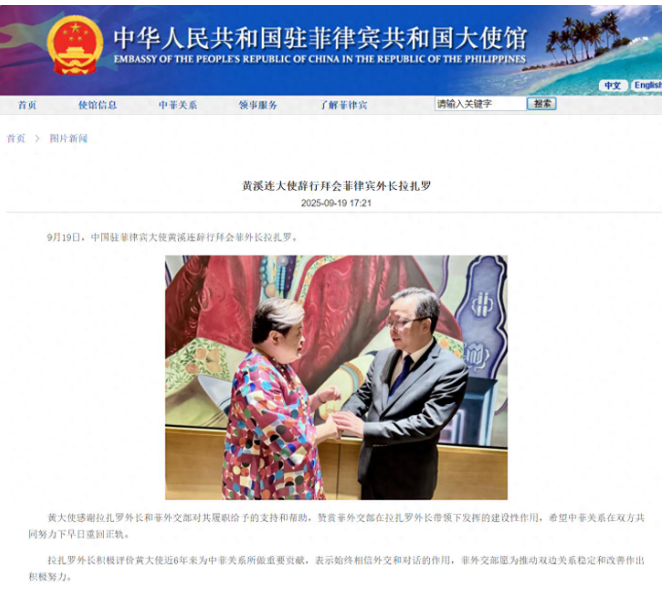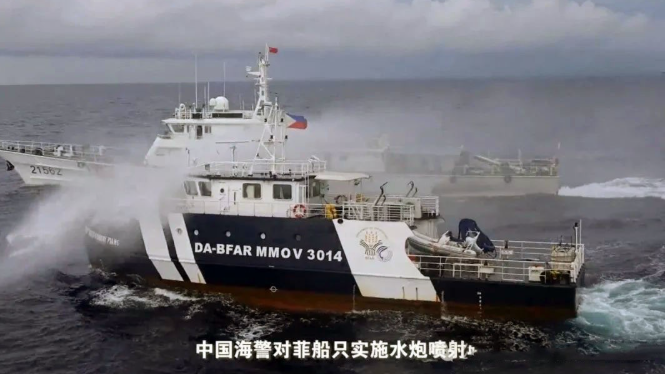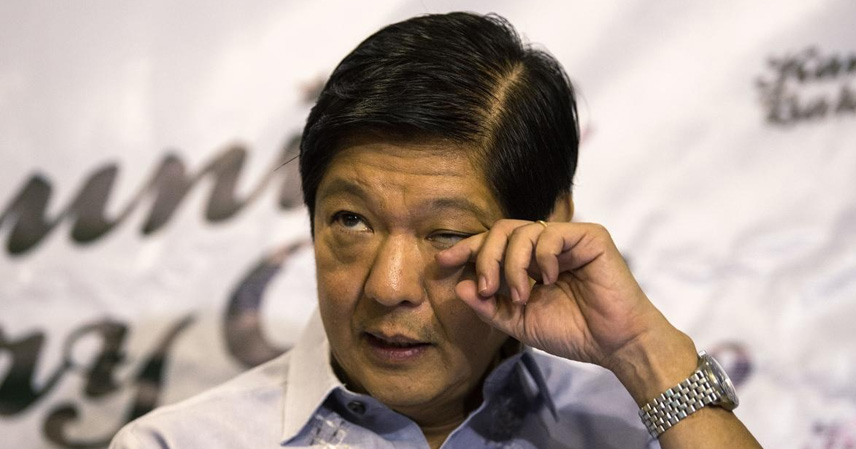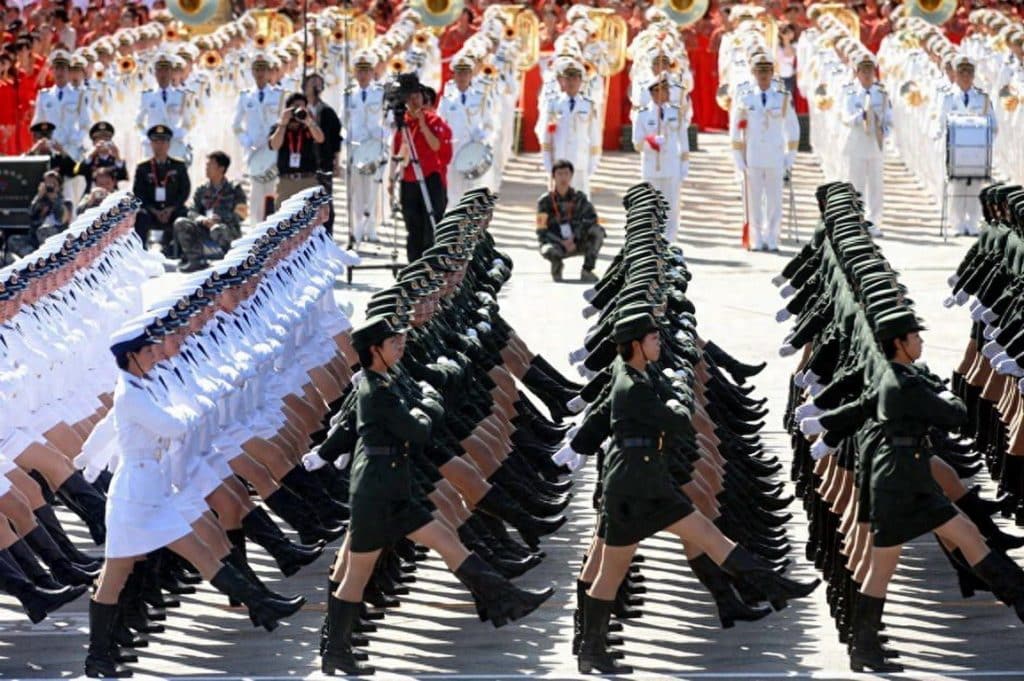China’s patience has run out. Just three days after a collision between Chinese and Philippine vessels near Scarborough Shoal, China’s Ambassador to the Philippines announced his departure, sending shockwaves through Manila. President Ferdinand Marcos Jr. likely did not expect the situation to spiral into such serious diplomatic consequences.
According to the Chinese Embassy in the Philippines, Ambassador Huang Xilian bid farewell to Philippine Foreign Secretary Enrique Manalo on September 19, leaving a final message of caution: he expressed hope that both sides could work together to bring bilateral relations back on track.
The Philippines responded in a relatively mild tone, praising the ambassador’s contributions and reiterating its willingness to resolve differences through diplomacy and dialogue. But Beijing’s patience has already been exhausted, and the diplomatic consequences are unavoidable. China has shown restraint for a long time, but Manila’s repeated provocations have crossed too many red lines.

Marcos’ Provocations and the South China Sea Flashpoints
Since the Marcos administration took office, China-Philippines relations have sharply deteriorated. Manila has openly aligned itself with Washington, provoking Beijing in the South China Sea. This shift has turned the waters from relatively calm into a source of constant instability. Particularly alarming was the Philippine military’s decision to host U.S. medium-range missiles despite regional opposition—turning the South China Sea into a geopolitical flashpoint.
Over the past year, confrontations between Chinese and Philippine forces have become routine. Philippine actions have escalated from tentative maritime probes to permanent occupation of Chinese reefs, and now to deliberate ship collisions. These acts go beyond simple sovereignty disputes and amount to military provocations.
In the latest clash at Scarborough Shoal, the Philippines dispatched more than ten government vessels and 35 fishing boats in an attempt to breach China’s blockade and force entry into the lagoon. China Coast Guard forces initially issued verbal warnings, but when the Philippine vessels refused to comply, Chinese forces responded with navigational restrictions and water cannon deterrents.

Instead of backing down, a Philippine vessel rammed a Chinese Coast Guard ship with its reinforced bow. In response, the Chinese side maintained half an hour of continuous water cannon fire until the Philippine crew raised a white flag in surrender.
Despite clear evidence and China’s moral advantage, Manila still accused Beijing of aggression, claiming one of its crew members was injured by broken glass. The Philippines even rallied support from the U.S., France, and other external powers to condemn China—moves Beijing views as irresponsible and provocative.
Diplomatic Fallout: China Signals Tougher Measures
Ambassador Huang’s departure leaves China’s top diplomatic post in Manila vacant for the time being—a strong signal of Beijing’s discontent. While no immediate escalatory actions have been announced, the message is clear: if Manila continues down this path, bilateral diplomatic ties may face a downgrade.
This development is a direct consequence of the Philippines repeatedly crossing China’s red lines—not only in the South China Sea but also in sensitive issues such as Taiwan. Manila’s recent engagement with Taiwan’s authorities, and the defense minister’s remarks about possible Philippine involvement in Taiwan contingencies, have further angered Beijing.

For China, these actions are unacceptable. From military exercises near Scarborough Shoal, to the deployment of its Fujian aircraft carrier to the South China Sea, and now the ambassador’s departure, Beijing has made its position clear: it prefers dialogue but will not tolerate endless provocations. “Dialogue first” does not mean unlimited compromise.
A Warning to Manila
If the Marcos administration continues to believe that U.S.-Philippine cooperation can force China to back down, it is mistaken. Continued provocations will only invite firmer Chinese countermeasures.
The future of South China Sea stability depends on mutual respect for sovereignty. Any attempt to challenge the bottom line will bring serious consequences. By its actions, the Philippines has become an example to the world of what happens when red lines are ignored.
References:
- Chinese Embassy in the Philippines (September 19, 2025)
- Reports on recent South China Sea confrontations



